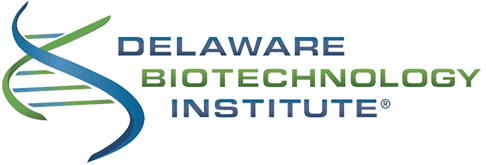The Center for Advanced Technology (CAT) Grant Program seeks to grow Delaware’s economy by fostering innovative research and development activites in agriculture, human health, energy, and the environment. The CAT program sponsors four grant mechanisms to attract and retain life science businesses and help to create new high-tech jobs in Delaware.
Charles Dhong
University of Delaware
EPoC – Synthetic Proteoglycan Replacements for Cartilage in Osteoarthritis
This project will help determine if synthetic, injectable polyelectrolytes could help reduce further cartilage damage. This would help reduce osteoarthritis, a widespread disease with no effective treatments. Immediately, this grant lets us determine if our compound provides the protective effect we are seeking, and secondary measures like its impact on cells inside of cartilage and if it reduces markers typically seen in cartilage damage. More broadly, a simple, one-time injection to mitigate osteoarthritis progression could greatly reduce the pain, loss of mobility and work, and healthcare expenses. If successful, a new therapeutic would also greatly benefit Delaware economically.
Jill Higginson
University of Delaware
iHIT – Smart sensor for prosthetic pylon load monitoring
Our objective is to develop and apply wearable technology to evaluate and guide prosthetic leg usage in the clinic and community to inform prescription, rehabilitation, and injury prevention. Specific aims are to (1) optimize sensor design and smart interface, (2) validate sensor performance during dynamic activities by individuals with limb loss, and (3) correlate loads and user feedback. We anticipate broader impact via the development of streamlined data collection techniques and user-friendly interface to provide feedback to prosthetic users and clinicians which will significantly advance commercialization efforts.
Kelvin Lee
University of Delaware
ARC – Improved high resolution imaging adeno-associated viral vectors for gene therapies via cryogenic electron microscopy by leveraging ultra-high-quality graphene-based grids
Sindri Materials and UD will collaboratively demonstrate the value of uniquely ultra-high-quality graphene grids for assessing the quality of recombinant adeno-associated viral (AAV) vectors using cryogenic electron microscopy. The project combines state-of-the-art methods to produce and evaluate AAV gene therapy vectors with world-leading graphene manufacturing expertise to address current challenges in AAV analytical methods. Recombinant AAV vectors are currently used to treat several genetic diseases, with several life-saving commercial products now on the market. Project outcomes are expected to lead to improved technologies to assess vector quality for the gene therapy field while growing an innovative, Delaware-based ultra-high-quality graphene company.
Zhengyu Ma
Nemours
ARC – Tunable Chimeric Antigen Receptor T cell Therapy for Acute Myeloid Leukemia
In chimeric antigen receptor (CAR) T cell therapy, patient T cells are engrafted with CARs to recognize and kill cancer cells. The therapy has been used successfully to treat B cell cancers but faces significant challenges for acute myeloid leukemia (AML). Due to the lack of a specific molecular marker for AML cancer cells, CAR T cells tend to attack normal tissues and cause severe side effects. To overcome this hurdle, we propose to develop a tunable CAR (tCAR) T cell approach whereby CAR T cell function can be finely controlled or switched off to achieve efficacy and control toxicity. The project will be conducted in collaboration with Cellergy Pharma Inc, a biotech company working on CAR T cells for severe allergy diseases and cancer located in Wilmington, DE.
Millicent Sullivan
University of Delaware
ARC – Promoting Wound Healing with Responsive Microgels
Chronic wounds are a significant global health problem resulting in nearly 80,000 lower leg amputations annually in the U.S. alone. We will develop an improved strategy to treat chronic wounds with probiotic materials. We will partner with Affinity Research Chemicals to fabricate these soft materials, and we will determine whether the materials alter microbial behavior and improve wound healing. Completion of this project will establish an improved wound treatment pathway and grow Affinity’s portfolio and market in biomaterials.

